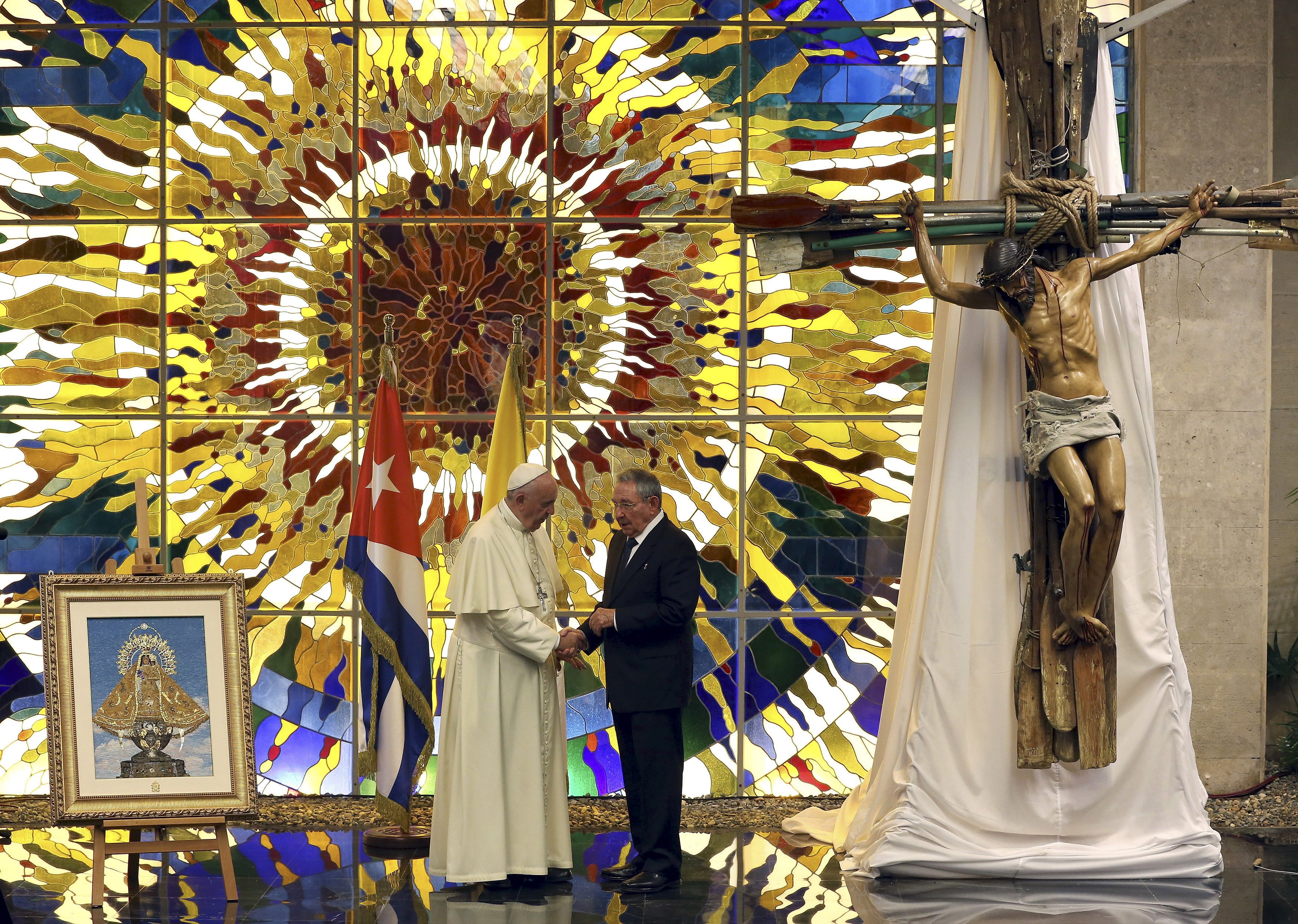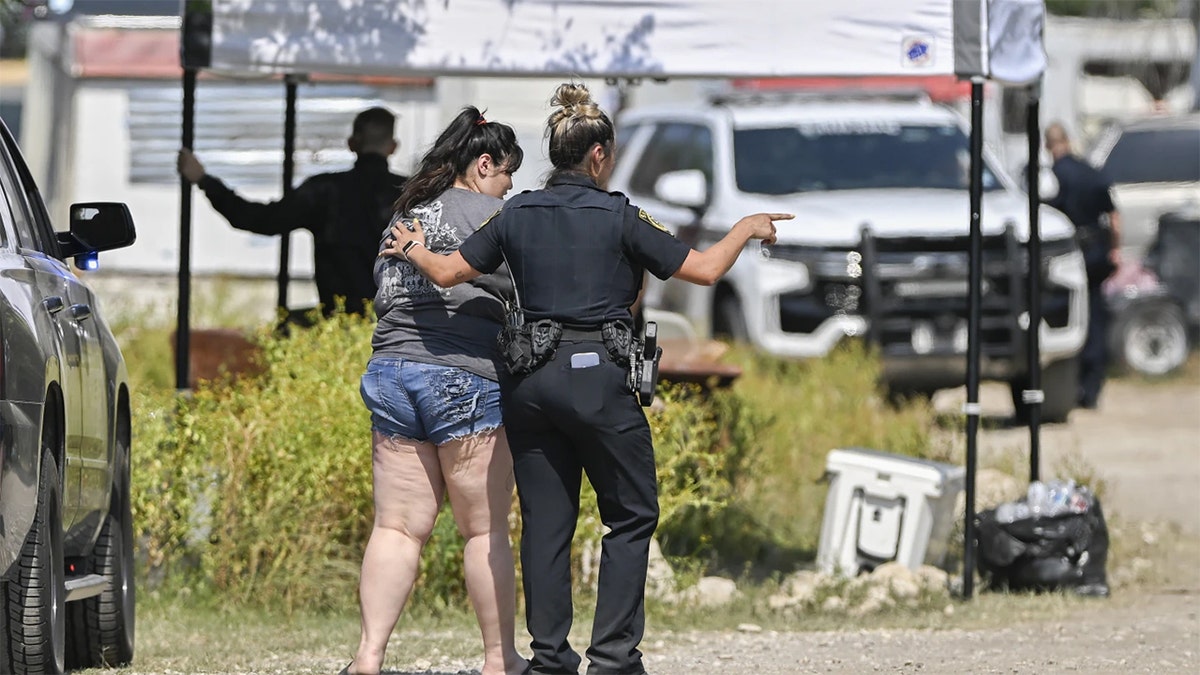The Vatican's Financial Crisis: A Legacy Pope Francis Couldn't Solve

Table of Contents
Historical Context: A Legacy of Opacity and Mismanagement
The Vatican's current financial difficulties are deeply rooted in decades of opaque practices, a lack of modern financial controls, and insufficient oversight. For years, the Holy See's financial dealings lacked the transparency and accountability expected of modern institutions. This historical legacy of mismanagement significantly complicates efforts at reform.
- Limited financial reporting and accountability: For a long time, financial reporting within the Vatican was inconsistent and lacked the detail necessary for effective oversight. This opacity made it difficult to track finances and identify potential problems.
- Lack of independent audits and external oversight: The absence of regular independent audits and external scrutiny allowed financial irregularities to go undetected for extended periods. This lack of accountability fostered an environment conducive to mismanagement.
- Instances of alleged fraud and mismanagement throughout history: Numerous allegations of fraud and mismanagement have surfaced throughout the Vatican's history, highlighting the need for stronger financial controls and oversight. These allegations, while often difficult to definitively prove, underscore the systemic issues that have plagued the Vatican's finances.
- Complex financial structures hindering effective control: The Vatican's complex financial structures, involving numerous entities and accounts, have historically made it challenging to maintain effective control over its finances. This complexity has often been exploited to conceal mismanagement.
- The Institute for the Works of Religion (IOR), commonly known as the Vatican Bank, as a significant focal point of concern: The IOR, despite reforms, has long been a source of controversy and concern, highlighting the need for enhanced transparency and accountability within the Vatican's financial institutions. Its operations have been subject to intense scrutiny in relation to money laundering and other financial irregularities.
Pope Francis's Reforms: A Struggle for Transparency and Accountability
Pope Francis initiated significant reforms to tackle the Vatican's financial crisis. These reforms aimed to improve transparency, accountability, and financial management within the Holy See. However, these efforts have encountered numerous obstacles, hindering their effectiveness.
- Creation of the Secretariat for the Economy to oversee Vatican finances: This new body was established to centralize financial oversight and improve coordination across different Vatican departments.
- Appointment of external auditors to enhance transparency: The involvement of independent auditors was a crucial step in improving the reliability and accuracy of the Vatican's financial reporting.
- Implementation of new financial regulations and procedures: Pope Francis introduced new regulations and procedures aimed at strengthening financial controls and reducing the risk of mismanagement.
- Challenges in enforcing reforms and overcoming internal resistance: Implementing reforms within the Vatican's deeply ingrained structures has proven challenging, encountering resistance from various factions.
- Limitations on the Pope's authority in reforming deeply ingrained structures: The Pope's authority, while significant, faces limitations in effecting rapid and comprehensive change within the complex bureaucratic structures of the Vatican.
- Ongoing investigations into suspected financial misconduct: Investigations into suspected financial misconduct continue to highlight the ongoing need for strengthened financial oversight and accountability within the Vatican.
The Persistent Challenges: Unresolved Issues and Ongoing Investigations
Despite the reforms implemented under Pope Francis, several significant challenges remain, including resistance to change, a lack of complete transparency, and ongoing investigations. These ongoing issues underscore the complexity and persistence of the Vatican's financial crisis.
- Slow progress in implementing reforms fully: The full implementation of reforms has been slow, hampered by bureaucratic inertia and resistance to change.
- Concerns regarding the effectiveness of existing oversight mechanisms: Concerns persist regarding the effectiveness of current oversight mechanisms in preventing and detecting financial irregularities.
- Continued investigations into potential financial irregularities: Ongoing investigations indicate that the problem of financial mismanagement within the Vatican is not yet fully resolved.
- The complexity of Vatican finances and the difficulty in achieving full transparency: The intricate nature of Vatican finances continues to pose significant challenges to achieving complete transparency.
- The political and bureaucratic obstacles hindering effective reform: Political and bureaucratic obstacles within the Vatican continue to impede the effective implementation of reforms.
The Future of Vatican Finances: The Path Towards Financial Stability
Securing the future of Vatican finances requires sustained commitment to reform, enhanced transparency, and international cooperation. Moving forward, a multi-pronged approach is necessary to address the persistent challenges.
- The need for sustained commitment to financial transparency and accountability: Ongoing dedication to transparency and accountability is critical for building public trust and ensuring effective financial management.
- The role of independent oversight and external audits in ensuring financial integrity: Independent oversight and external audits are essential for maintaining financial integrity and preventing future irregularities.
- Strengthening internal controls and improving financial management practices: Improved internal controls and best financial management practices are vital for preventing future crises.
- Collaboration with international organizations to enhance best practices: Collaboration with international organizations can provide valuable expertise and best practices to strengthen the Vatican's financial management.
- The potential for further reforms and legislative changes to improve financial governance: Further reforms and legislative changes may be necessary to strengthen financial governance and ensure lasting stability.
Conclusion:
The Vatican's financial crisis represents a multifaceted and persistent challenge, even with Pope Francis's substantial reform efforts. While significant progress has been made towards greater transparency and accountability, the journey toward complete financial stability remains lengthy and complex. Addressing the historical legacy of opacity, overcoming resistance to change within the Vatican, and ensuring the effective implementation of new financial regulations are paramount for the future financial health of the Holy See. Further investigation and unwavering commitment to reform are essential for successfully navigating the ongoing Vatican financial crisis and securing a more transparent and accountable future. A thorough understanding of the Vatican financial crisis, its complexities, and ongoing efforts towards resolution is crucial for anyone following the future of the Catholic Church and its global influence.

Featured Posts
-
 Cnn Reports Van Motorcycle Collision Amidst Road Rage
May 08, 2025
Cnn Reports Van Motorcycle Collision Amidst Road Rage
May 08, 2025 -
 Kripto Para Platformlari Icin Yeni Zorunluluklar Spk Nin Getirdigi Sermaye Ve Guevenlik Sartlari
May 08, 2025
Kripto Para Platformlari Icin Yeni Zorunluluklar Spk Nin Getirdigi Sermaye Ve Guevenlik Sartlari
May 08, 2025 -
 Universal Credit Claimants Understanding The Dwps Verification Changes
May 08, 2025
Universal Credit Claimants Understanding The Dwps Verification Changes
May 08, 2025 -
 The Academy Awards Biggest Blunders Historys Most Notable Snubs
May 08, 2025
The Academy Awards Biggest Blunders Historys Most Notable Snubs
May 08, 2025 -
 Human Smuggling Ring Dealt Blow Fia Arrests Four
May 08, 2025
Human Smuggling Ring Dealt Blow Fia Arrests Four
May 08, 2025
